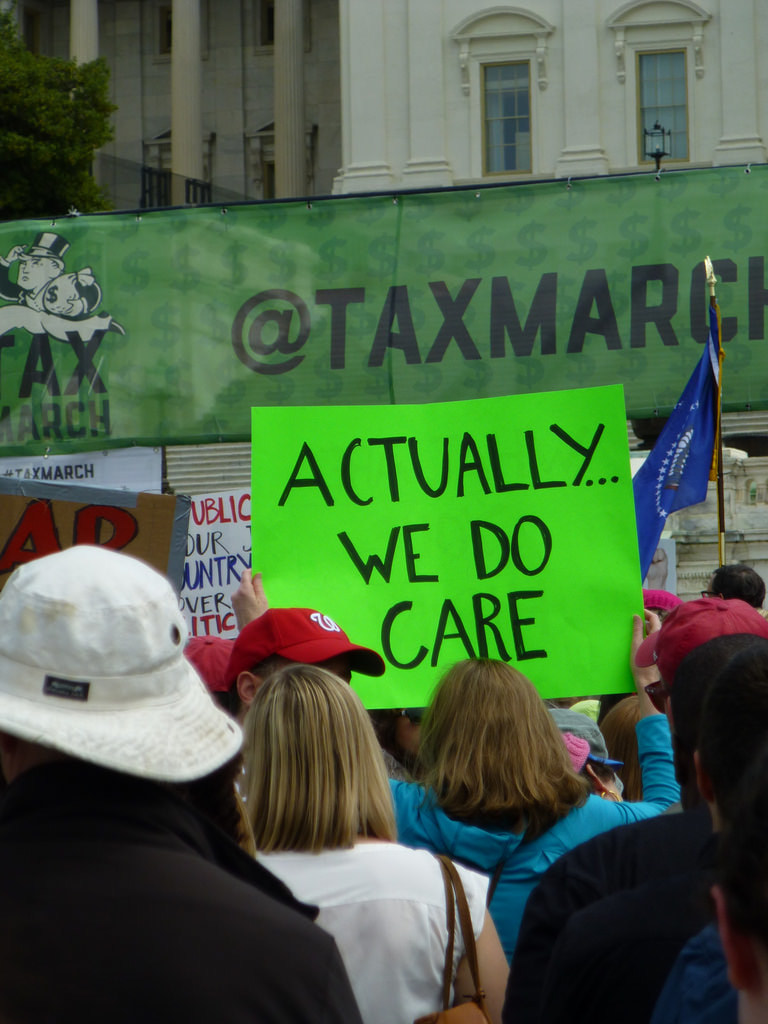| Do protests destabilize a nation? Or does the First Amendment to the Constitution protect the right to peaceably assemble and “to petition the government for a redress of grievances” specifically because the Founding Fathers believed the opposite was true? The question has gained some relevance as news reports reveal how Russian-linked Facebook accounts allegedly were behind the organizing and financing of various protests both during and after last year’s election. A Wall Street Journal report said sometimes these Russian influencers organized protests on both sides of a volatile issue, seemingly agnostic about the actual causes. One example: Russians were believed to have been behind both a “blue lives matter” rally in Dallas after several officers there were shot, and a rally to protest a police shooting in Minneapolis. |
| | They backed rallies both for and against Donald Trump. The Journal examined now-deleted Facebook posts and interviewed activists. It found that eight Russian-backed accounts attempted to publicize or finance at least 60 protests or rallies nationwide. The report said it was unclear whether more than half of those events actually happened. Facebook officials said they have closed about 470 such accounts that were used to foment social unrest of various kinds. So, why would Russians do this? The Journal quotes Sarah Oates, a University of Maryland professor of political communications, saying the Kremlin believes such protests would destabilize a democracy. And that takes us back to the original question. To be sure, it is interesting to note how some political agitators on either side of an issue can be played like fiddles, made to protest with little provocation. But then, the report found that sometimes these people wouldn’t take the bait, even with the promise of expenses being paid. It’s frankly difficult to build the case that a nation born of events such as the Boston Tea Party and formed through protest marches for women’s suffrage and civil rights, or against the Vietnam War, to name only a few, is weaker than it would have been without that unrest. Perhaps it is true that fake protests — those fomented by outside influences to exaggerate internal divisions — are not good for the country, especially if they turn violent. The word “peaceably” is in the Constitution for a reason. But a better bet is that this is a classic case of Russian organizers badly misunderstanding the foundations of American governance. Maybe instead of trying to fan the flames of discontent here, they could work on strengthening their own country by allowing people to speak their minds about the Kremlin. |


 RSS Feed
RSS Feed

